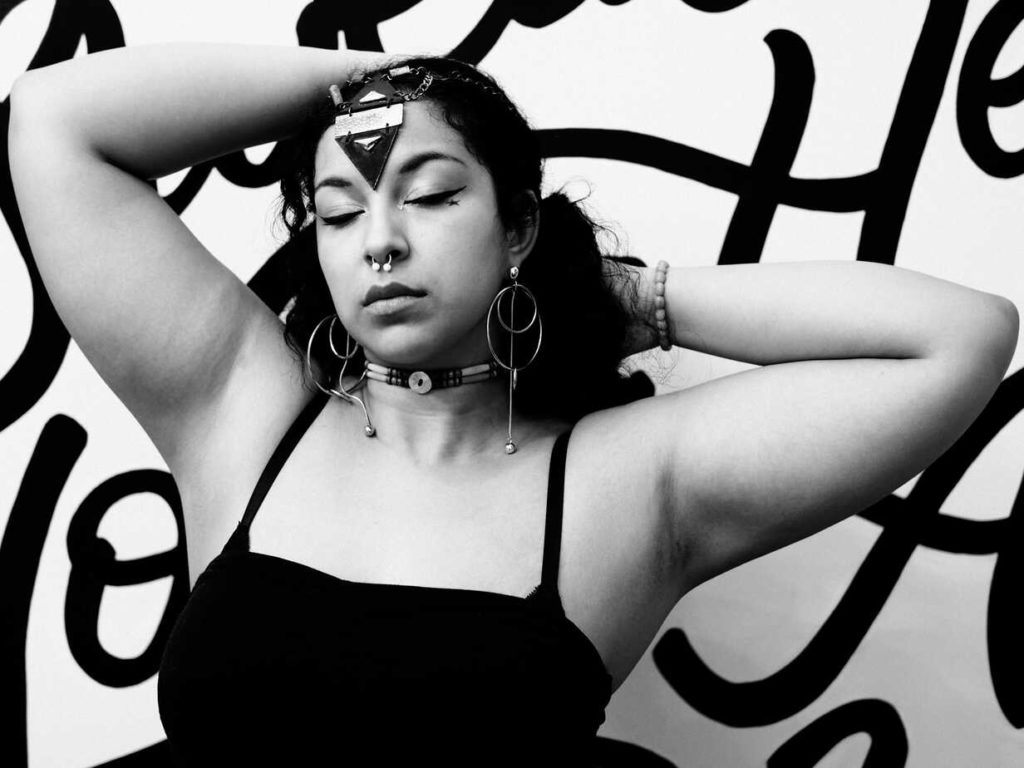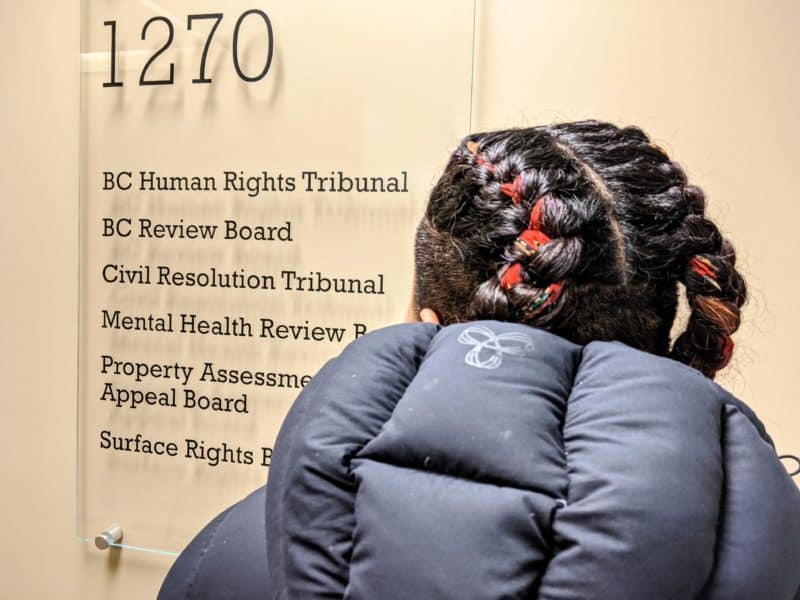
Diana Hellson, aka Mamarudegyal, is an Indigenous hip-hop artist who has long been using her voice to challenge misogyny, racism and stereotypes about Indigenous people.
Hellson belongs to the Siksika Nation. She’s also West Indian from Saint Lucia and Celtic or English. She lives in Burnaby, B.C., but she grew up in Calgary, Alberta — where she remembers kids throwing rocks and racist insults at her on a regular basis because she’s Indigenous and black.
“You’re not Native. They’re extinct. My dad told me they’re extinct.”
“I can’t hang out with you because I’m allergic to Indians.”
“You’re an n-word. You’re a wagon-burner.”
The racism was neither hidden nor quiet, says Hellson. By the time she hit Grade 7, she was fed up. She told her teacher she wanted to take over a social studies class, so she could school her classmates.
“I wouldn’t take no for an answer. I was like, ‘You let me do it. I’m a Blackfoot woman and you’re on the Blackfoot Confederacy. You let me teach them about Indigenous people ‘cuz they’re here and they don’t know.’”
After the teacher okayed her request, Hellson cranked out a lesson plan. She began by presenting photos of Indigenous women like actress Michelle Thrush, one of her mentors.
Look, she’d say: “She’s not drunk; she’s not on crack; she’s not on the rez; she’s not homeless.”
She wanted to challenge the stereotypical image she feels white people often conjure up when they think of an Indigenous person — that of “a long-haired, drunk, homeless person.”
Hellson’s mom was in theatre, and she grew up around a lot of Indigenous actresses. She wanted her classmates to see Indigenous people the way she did, “as powerful, strong people who protest and who cook for their families and who are very, very intelligent.”
Following the slideshow, she’d play clips from Peter Pan, fast-forwarding the VHS tape to racist depictions of Indigenous people. She’d explain how racism is normalized through pop culture. Then she’d serve bannock and jam and play the only “class-friendly” track off of The Foundation, a hip-hop album by Rez Official.

She found her classmates were mostly receptive to her teachings, and so she did the same thing in grades 8 and 9 — demanding space and then educating her peers.
These days she’s fighting racism and misogyny as a multidisciplinary artist.
“Many Indigenous narratives are being controlled by non-Indigenous filmmakers, directors, writers, producers, etc.,” says, Hellson, who’s now 27.
Whether through film or Rudegang Entertainment — the hip-hop group she co-founded — she’s building anti-racist, feminist spaces for Indigenous artists.
“They’re telling stories,” she says. “And these lyrics are powerful and they’re beautiful.”
Recently she was selected to receive $20,000 to produce a short film about the Indigenous hip-hop community through the Indigenous Storyteller Edition of Telus’ STORYHIVE project. As one of 30 Indigenous grant recipients in B.C. and Alberta, she’ll receive funding along with mentorship and training.
“The hip-hop scene in Vancouver is very dominated by a bunch of white boys,” she says. Meanwhile she sees artists of colour — “who make great hip-hop, who are not talking about drugs, who are not talking about receiving fellatio, and who are not talking about bums and cars and things” getting overlooked and excluded from the underground hip-hop scene.
If we’re serious about combating racism and promoting safety and inclusion, especially for Indigenous women, Indigenous perspectives need to be amplified, she insists.
She wants non-Indigenous people to understand what it’s like to go out for a bag of chips and feel a shopkeeper breathing down your neck as you walk the aisles.
“I have big, curly hair, and sometimes I wear clothes that make me look more hip-hop or more kind of like heavy metal — not so ‘cutesy’ and innocent,” she says.“They’re staring right away. And then I make them nervous as I walk deeper into their store.”
She wants people to understand what it’s like to walk by a cop as an Indigenous woman. “I have a lot of fear when I see RCMP and things like that, any police. So I try to remain unseen by them because I just don’t want them to see me at all.”
Hellson dreams of living in a world where she doesn’t have to fear for her safety when she’s walking down the sidewalk or prepping for a show backstage. Where she can pay her bills and take care of her kid and “stop starving.” Where men hold other men accountable.
And meanwhile, even though “misogyny is normal as fuck,” she’s finding ways to push back — using the medium and language of hip-hop to get men thinking twice about their actions, in sneaky, subversive ways.
“I’m excited to be in a position where I can take hip-hop and start putting a different narrative behind it,” she says. “After the song’s over [men] realize they feel bad because I was talking about how shitty baby daddies are, but they didn’t realize it because the song was so good. And then they’re like, ‘Wait hold on, that song’s about me. I need to go and take care of my kids.’” [end]



